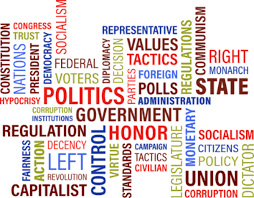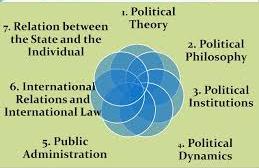
Political Science Subject Skill
Political science Subject deals with systems of governance and the analysis of political activities, political thoughts, and political behaviour.
Political science is the study of politics and power from domestic, international, and comparative perspectives. It entails understanding political ideas, ideologies, institutions, policies, processes, and behaviour, as well as groups, classes, government, diplomacy, law, strategy, and war.
Political science comprises numerous subfields, including comparative politics, political economy, international relations, political theory, public administration, public policy, and political methodology.

Importance to study Political Science Subject:
- Politics is changing constantly and so does the subject. The majority of programmes undergo constant updating: many facets of the programme such as content and methods to meet the challenges of the changing political landscape. This means that by studying politics, you will be able to learn something new every day.
- Great options to combine courses: political Science Subject departments usually offer a number of dual honours degrees, so it is possible to combine political Science Subject with another passion or explore two strands of political learning in greater detail.
- Study abroad: politics is a very international subject area and this is reflected in the variety of modules from which you will be able to choose if you want to study abroad. You can tailor your degree to your aspirations, travelling the world and turn your studies into a first-hand experience.
Prepare assignments before attending class.
- One of the keys for performing well for Political Science Subject Preparation is being alert and ready for the class every day. It’s important to start preparing for your classes early. That means getting ready the day before your classes are supposed to happen by reading the Chapter in detail.
- Listening and note-taking should go hand in hand. Listening does not mean hearing. Identify important points in the lecture, and think up questions you have about what your teacher is talking about.
- Of course, you can jot down those questions and important points in your notes. Good notes are brief and highlight only the core points that your Educator is trying to communicate. You should be able to, at a glance, summarize what your teacher was trying to say. Don’t go into overly long, wordy notes or you’ll lose the point. You also might miss follow up information your teacher is trying to provide. The questions that you write about the material are important because they mark areas you might be confused about. You can follow up on those points in your study materials or with your teacher.
How to study Political Science Subject further at the College level?
- Political Science Subject offers a wide range of courses with different specialisations at the further College level Studies. You will be able to choose modules according to your personal preferences. In addition, Credit points are often gained by writing papers for further Education, sitting exams or giving presentations.

Career paths by learning Economics Subject include:
Graduates with a degree in political science in the future commonly go on to pursue careers in business, education, law, journalism, communications, government or politics. As you can see, careers in Political Sciences are very versatile and provide numerous transferable skills that a lot of employers are looking for. The job Opportunities for Political Sciences graduates aren’t limited to the list above, as you can find other careers you can pursue.
Other popular jobs in Political Sciences include in addition political scientist, state legislator, community service manager, city administrator, overseas diplomat, political analyst, consumer advocate, and many others.
I believe by Studying Political Science Subject in detail it will help you better understand how governments operate and interact, the impact of government policies on economic stability and growth and how laws affect social and political change. Politics influences every aspect of our lives and contributes to the wellbeing of a nation, including education, employment, healthcare, and housing.



